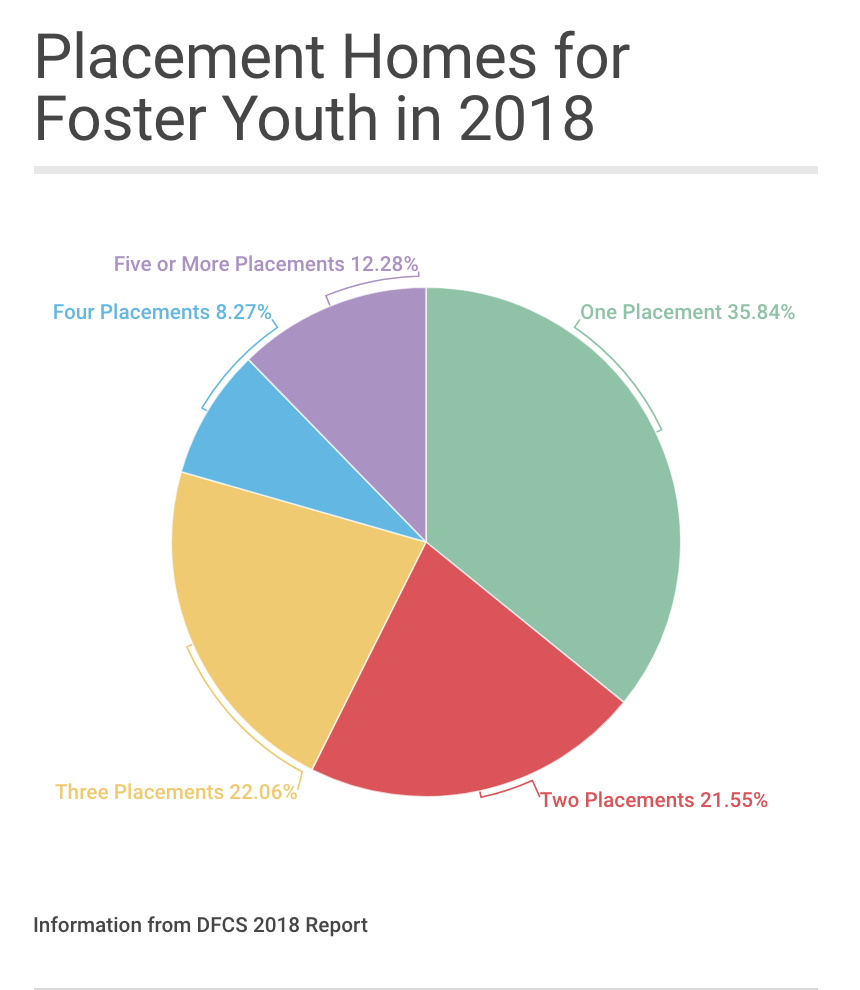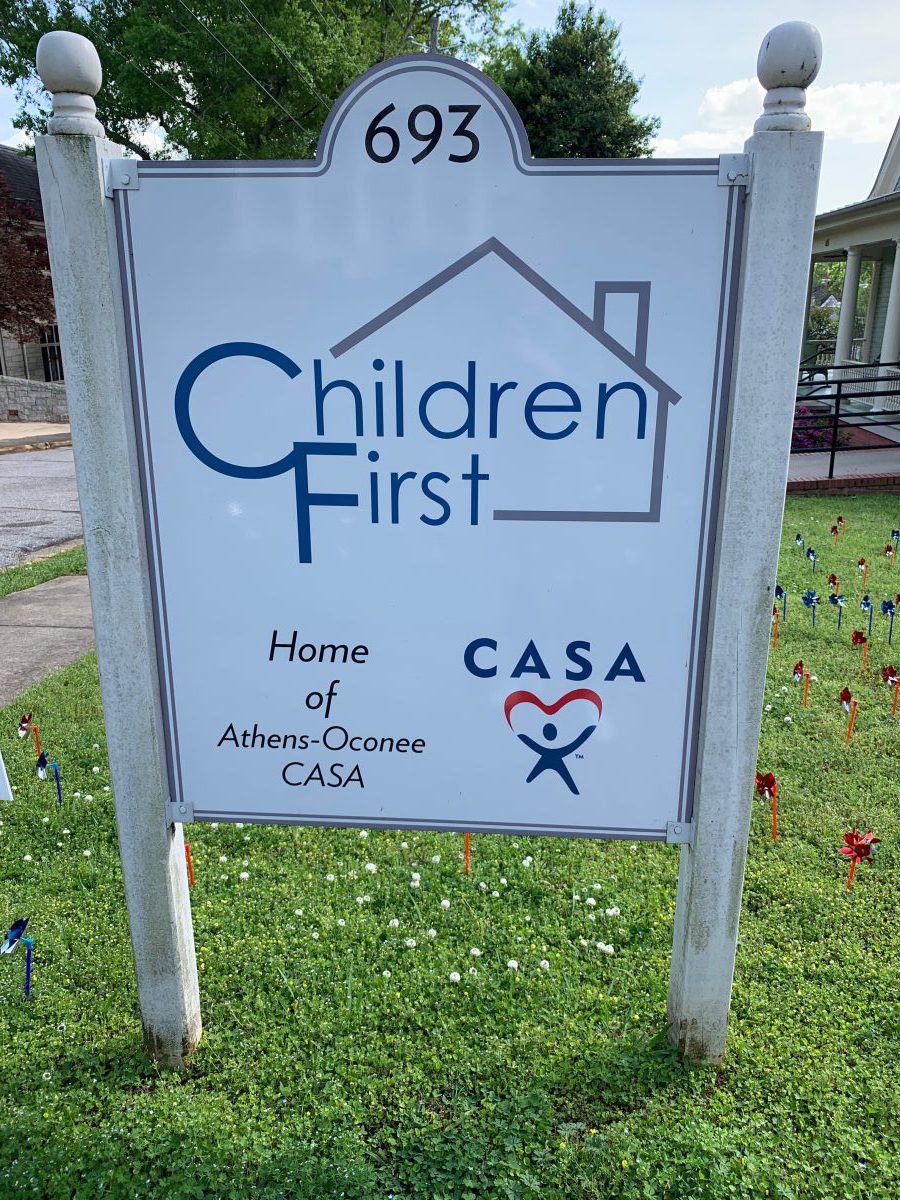Dr. John DeGarmo lost his first child 23 years ago. This loss fueled a passion in Dr. DeGarmo to help children who are suffering. He and his wife Dr. Kelly DeGarmo opened their doors to more than 60 foster children.
Nationwide the increase in the number of children in need of foster care far exceeds the number of homes available. Some communities in Georgia experienced the number of children in foster care double in the past seven years. In 2018, over 1,700 children entered foster care in Georgia’s region 5, which includes Barrow, Clarke, Elbert, Green, Jackson, Madison, Morgan, Newton, Oconee, Oglethorpe, Rockdale and Walton, according to a report by the Department of Family and Child Services.
Foster youth often lose their homes, and if they move too often, their odds of finding a home in the juvenile justice system grows.
Why It’s Newsworthy: A study showed that more than 90% of youth in foster care with five or more moves enter the juvenile justice system.
Need for Foster Homes in Athens
The need for homes is huge. If foster youth continue to move around and leave their regions, the risk of entering the juvenile jails increase tremendously.
A local nonprofit in Athens is determined to help these kids stay in their hometowns.
Home in 5 opened in 2015 as a response to the increase in children entering foster care. The main goal of the organization is to grow the number of foster homes in region 5 and sustain that increase.
The organization serves the counties of the Department of Family and Child Services region 5.
Studies show that most foster parents get burnt out after two years according to Dr. DeGarmo. The National Institute for Foster youth reported in 2017 that 30 to 50 percent of foster parents burn out.

Not Enough Foster Homes
A DFCS Diligent Recruitment and Retention Plan started in January 2015. The state’s goal was to increase foster and adoptive resources. Today there is 246.7 percent increase in the number of approved relative foster homes and 11.51 percent increase in number of non-relative foster home resources, according to a DFCS report in 2019.
Nationwide there is an increase in the number of kids in foster care. From 2013 to 2017 the Adoption and Foster Care Analysis reported a 10 percent increase in children entering the foster care system. While the number of children increases, the number of available foster homes in half of the states decreased, according to a study by the Chronicle for Social Change. The study only focused on non-relative homes and in-group care settings nationwide from 2012 to 2017.
This study ranked Georgia second for the greatest increase in foster beds with 2372. However Georgia also ranked third with greatest increase in foster youth behind Arkansas with 9820, California with 6213, and Georgia with 5860. Therefore, it is not surprising that the increase in beds still cannot meet the demand.
Education Impact
When foster youth change regions, they also change schools. There can be a delay in this process due to paperwork. Some of the negative effects are the poor attendance, repeat courses, failing to address any special needs of the child and inappropriate classes for the student, according to a report by the National Working Group on Foster Case and Education. In the same report, one study found that a third of foster youth in care for more than 2 years were suspended. Four percent of these foster youth were expelled, according to a study in San Mateo County.
“Studies show that every time a child moves schools they fall approximately 6 months behind,” according to Arden Bakarich, Athens-Oconee Court Appointed Special Advocate, Advocacy Coordination.
A CASA in Athens, Jessica Breeden, noticed the education impact of her case. The siblings that she worked with for the past three years moved over an hour away. All the kids transferred schools. Breeden saw the children struggle in their new school and classes. She found that the older two children struggled the most.
Evidently, this is not uncommon, according to Brittany Caylor of Home in 5. “There is a huge education impact when a child moves schools especially in middle and high school. Schools are learning different materials in different grades,” said Caylor.
It is difficult to place kids in the right classes as the curriculum can be so different from their previous school. There is also a lot of paperwork that has to be transferred, particularly if a child has a 504 learning plan or Individualized Education Plan. Thus, it can be easy to fall behind, which discourages children at such a young age.
“Most of our kids don’t even graduate high school, which affects the rest of their life,” said Caylor
Benefits of Children Staying in their Region
Where do foster youth go when they are taken from their parents? Where do they go when there are not enough beds to meet the demand for foster youth?
“They are going outside of their region. Sometimes they are staying in hotels or agency floors. They are floating from home to home to home, ” said Dr. DeGarmo.
Dr. DeGarmo personally met children who have been in over 30 placements through his work around the country as a foster care consultant. This is not the norm, but it can happen. However, this disruption of constant moving can cause detachment, insecurity and potentially behavioral problems.
Children who stay in their hometown have a better chance at reunification. Once a child is put into foster care, a parent is assigned a case plan that they must keep up with in order to be reunified with their kid or kids. If a child is put in a town an hour away or two hours away this process becomes much more difficult and expensive, according to Caylor.
The transition and continuity of care is a lot smoother when children can stay in their regions. This is important as the child can keep a more similar routine in the same school, with the same doctors, hang out with the same friends, and be involved in the same after school programs. Additionally, if a child stays in the same region but in a neighboring county, it is possible for the child to attend the same school.
Increase of Kids in Foster Care
The Georgia Department of Family and Child Services report in 2019 saw a 15% increase of children entering foster care under the age of 1 from 2012 to 2015. This is a nationwide trend that is believed to be related to the opioid epidemic.
“In rural Georgia there is a big problem with opioids and again these kids have no place to go. When their parents are incarcerated or dying, where do they go,” said Dr. DeGarmo “They are going into the foster care system and in our state (Georgia) and in many states that can’t handle it.”
In 2010 Georgia had around 10,000 kids in the foster care system but today there are 13,873 kids as of February 2019, according to a DFCS report.
Stigma of Foster Children
Brittany Caylor believes some people don’t foster is because of a stigma around foster children. Some people have the idea that children who are in foster care are troubled kids or that it is their fault.
“They haven’t done something wrong. Their parents can’t give them the care that they need, “ said Caylor.
Caylor notes the importance of understanding that this is already a difficult situation for kids. They leave their home, parents and possibly siblings.
Dr. DeGarmo spoke of a similar stigma that these are “bad kids” through his work as a foster consultant and author. He has also heard of parents not wanting to foster because it would be heartbreaking to have the child leave. Dr. DeGarmo does not deny the pain of goodbyes to a foster child. After saying his goodbye, Dr. DeGarmo experienced the grief of no longer having this child in their home, but that is what’s supposed to happen.
Can’t foster but want to make a difference?
RELATED: CASA’s Can Make a Big Difference but Most Foster Youth Don’t Get One
Cat Sullivan is a fourth-year majoring in Journalism and International Affairs at the University of Georgia







